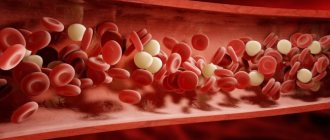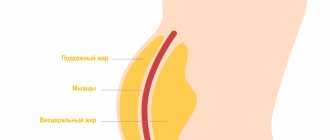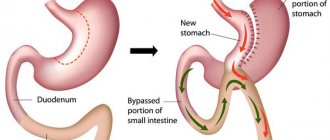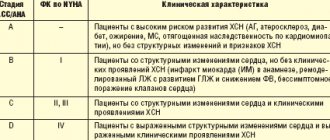More than once at an appointment I came across a situation where a patient without any obvious cardiovascular pathology prescribed cardiomagnyl (or thromboASS, cardio aspirin, etc.), being sure that absolutely everyone at his age (that is, “after 45 -50 years"), this is exactly the kind of prevention of cardiovascular diseases that is needed. After all, the neighbor also drinks, they say on TV that it’s necessary, and so on...
Is it really necessary?
The fact is that modern recommendations for the treatment of cardiovascular diseases (CVD) speak of the need for lifelong use of aspirin by those people who have already suffered any cardiovascular events. These include heart attack, stroke, transient ischemic attacks. As for the use of aspirin by people who do not have a history of any cardiovascular diseases, including those listed above, today the routine administration of aspirin (or other antithrombotic drugs) to such patients is not recommended due to the lack of evidence supporting First of all, the safety of such prophylaxis in this category of patients.
The most common side effect when taking aspirin is a negative effect on the gastric mucosa. Also, with its long-term use, the risk of bleeding of various localizations (gastrointestinal, hemorrhoidal, nasal, etc.) increases, and this fact cannot be neglected, because in certain situations such bleeding can become life-threatening.
In this regard, before prescribing aspirin to a patient, the doctor must assess the benefits and risks of taking it. In patients who have had a heart attack or stroke, the benefits of prophylactic aspirin have been shown to outweigh the possible risk of bleeding and are therefore recommended. And the role of aspirin in people who have no history of either one has not been fully studied. The scientific data that we have today indicate that there is no clear benefit from such prevention and, at the same time, an increased risk of bleeding of various locations. However, the issue remains poorly understood; large studies are ongoing, and we are waiting for their results.
As for patients of older age groups who have any risk factors for the development of cardiovascular diseases (arterial hypertension, high blood cholesterol, etc.), patients with diabetes mellitus, the situation is approximately the same: it has not yet been revealed that The benefit of taking aspirin outweighs the risk of bleeding in such patients, and therefore its use cannot be recommended routinely.
What is Cardiomagnyl used for?
This medicine helps prevent the development of thrombosis and related complications in people with diseases of the cardiovascular system. Active substance of the drug: acetylsalicylic acid (aspirin). NSAIDs with a pronounced antiplatelet effect prevent platelet adhesion and the formation of blood clots, improve blood fluidity. Magnesium hydroxide in the composition blocks the toxic effects of acetylsalicylic acid on mucous membranes.
In industry, Cardiomagnyl is produced in two dosages:
- white heart-shaped tablets: each contains 75 mg of aspirin and 15.2 magnesium;
- Cardiomagnyl Forte: round-oval scored pills, 150 mg of acetylsalicylic acid and 30.39 mg of magnesium each.
Form-forming and auxiliary substances of the drug: talc, starch, MCC and others.
Regular use of the medicine prevents platelet aggregation and the deposition of blood clots in blood vessels.
Characteristics of Thrombo Ass
The antiplatelet agent reduces the intensity of blood clotting, additionally preventing thrombosis. The main component is acetylsalicylic acid, 1 tablet. contains 100 mg of the component. Auxiliary properties - reduction of temperature, pain, inflammation.
The blood thinning effect of aspirin has a positive effect on patients with varicose veins, reduces the risk of cancer, and is used during preeclampsia. Thrombo Ass improves the flow of blood, which passes through small vessels without difficulty. The drug is approved for continuous use, but the therapeutic regimen should be discussed with a cardiologist/surgeon.
Indications for use of Thrombo Ass:
- restoration of cerebral circulation in the presence of ischemic heart disease;
- heart attack prevention;
- prevention of thrombosis, embolism.
The drug is gentle on the body, so it is suitable for patients with a susceptible stomach. The following can be noted as negative actions and contraindications:
- peptic ulcers of the gastrointestinal tract;
- hemophilia, increased bleeding, hypothrombinemia;
- limited to persons under 18 years of age and during lactation.
Use in the 1st-2nd trimester of pregnancy is acceptable, but combination with other medications (anticoagulants, glucocorticoids, diuretics) is prohibited. Adverse effects include dizziness, dyspeptic disorders, changes in the menstrual cycle, bronchospasm, and iron deficiency anemia. It is allowed with great caution in patients with liver and kidney failure. But all this can be avoided if the dosage is followed correctly.
How does Cardiomagnyl work?
ASA (aspirin) in the composition of the drug is quickly absorbed from the gastrointestinal tract and blocks the main mediators that regulate platelet aggregation. Being present in the bloodstream, acid prevents excessive thickening and the formation of blood clots. Magnesium salt acts as a protector, protecting mucous membranes from irritation.
The active substance Cardiomagnyl is metabolized in the liver and intestines. Acetylsalicylic acid does not accumulate in the body. In the absence of severe damage to internal organs, salicylates are eliminated without causing harm.
Which one should you prefer?
Before deciding on the choice of drug, it is necessary to study the contraindications for use. For both medications they are the same:
hypersensitivity to salicylates or any component of the drug;- chronic course of bronchial asthma, which is caused by a history of taking acetylsalicylic acid or non-steroidal anti-inflammatory drugs;
- gastric ulcer in the acute stage;
- bleeding and hematological pathologies (hemorrhagic diathesis, hemophilia, thrombocytopenia);
- severe insufficiency of the liver and kidneys;
- simultaneous use with methotrexate.
If the type of pharmaceutical drug or its dose is incorrectly selected, as well as individual sensitivity and characteristics of the body, the following side effects may occur, as a result of which it is necessary to discontinue or replace the drug:
- from the gastrointestinal tract: heartburn, belching, pain in the epigastric region, inflammatory and erosive-ulcerative lesions, which can lead to bleeding and perforation;
- increased risk of bleeding from postoperative wounds, the appearance of hematomas;
- hypersensitivity reactions: itching, redness of the skin, swelling, bronchospasm;
- transient liver failure;
- hypoglycemia.
Destination Features
In order to decide whether to take Cardiomagnyl or Thrombo ACC, you need to consult with your doctor. Only the doctor indicates the need and dosage of medications. In some cases, self-medication with blood thinners can be dangerous to your health and have serious side effects.
For example, treatment with acetylsalicylic acid is prohibited during pregnancy, especially in the first and third trimester. There is a risk of giving birth to a child with developmental defects (cleft of the hard and soft palate, abnormal structure of the heart), and the appearance of intracranial hemorrhages. Also, taking these drugs can cause harm to the mother: post-term pregnancy, weak labor, prolongation of bleeding time. If there is a need for therapy, the dose of the drug should be as small as possible and the course of treatment should be shorter.
When treating varicose veins, emphasis is placed on reducing blood viscosity, the possibility of thrombosis and improving microcirculation. For this purpose, using only Thromboass and Cardiomagnyl is not enough, since they only have a disaggregant property. The treatment regimen includes Actovegin (improves blood flow and metabolic processes), Curantil (prevents the formation of blood clots), as well as drugs that strengthen the vascular wall.
Before making a choice in favor of one drug or another, the doctor carefully collects the patient’s medical history, conducts a physical examination (palpation, auscultation), and also studies laboratory blood values. Some experts argue that magnesium hydroxide, which is part of Cardiomagnyl, does not perform the function of an antacid well enough, and prefer an enteric coating, like that of Tromboass. Other researchers have noticed a weak antiplatelet effect of low-dose drugs that dissolve in the intestines.
Which of the two drugs is suitable for a particular patient should be decided only by the doctor. If there are complaints of dyspeptic disorders, abdominal pain, exacerbation of erosive processes in the gastrointestinal tract, it is necessary to stop taking medications or replace them (if it is impossible to interrupt disaggregant therapy), supplementing treatment with antacids.
In what cases should you take Cardiomagnyl?
The medicine is prescribed to prevent complications in the following pathologies:
- risk of developing myocardial infarction;
- condition after a heart attack;
- chronic cardiac ischemia;
- diabetes;
- hypertonic disease;
- atherosclerosis, high cholesterol;
- risk of thrombosis with varicose veins.
Cardiomagnyl is unable to replace drugs for lowering blood pressure, does not regulate heart rhythm and has no effect on the general course of the disease. Its function is to prevent the development of thrombosis. The drug is also not used as a source of magnesium.
Effective drug analogues
The following drugs are analogues of Cardiomagnyl, Thrombo Ass, Trombital. Many of them have different active components, but the properties and purposes are identical. Of course, the price category of the drugs also differs.
Table with effective medications:
| A drug | Active substance | Manufacturer | Price in rubles |
| Aspirin Cardio | acetylsalicylic acid | Germany | From 80 |
| Thrombogard | acetylsalicylic acid | Bulgaria | From 50 |
| Thrombopol | acetylsalicylic acid | Poland | From 39.50 |
| Asparkam | potassium and magnesium aspartate | Russia | From 48 |
| Acecardole | acetylsalicylic acid | Russia | From 25 |
| Panangin | potassium and magnesium aspartate | Hungary | From 121 |
| Fasostabil | acetylsalicylic acid + magnesium hydroxide | Russia | From 165 |
| Clopidogrel | clopidogrel | Russia | From 400-670 |
| Brilinta | ticagrelor | Sweden | From 2500 |
| Trental | pentoxifylline | India | From 429 |
| Aspecard | acetylsalicylic acid | Belarus | From 27 |
After a thorough analysis of blood thinning drugs with different active substances, it is clear that in this field there is an extensive list of medications that are indicated for patients with different disorders.
Acecardol is an antiplatelet agent
One tablet of Acecardol contains 50/100 mg of the main element - acetylsalicylic acid. Excipients: magnesium stearate, talc, povidone, starch. High doses of the drug exhibit an antipyretic and analgesic effect. The component is completely absorbed into the digestive canal and is only partially metabolized during absorption. The price of Acecardol is cheap and amounts to 25 rubles. for 50 mg.
What is Acecardol used for:
- unstable angina;
- prevention of recurrent myocardial infarction;
- prevention of deep vein thrombosis;
- warning of pulmonary embolism;
- disorder of the blood supply to the brain to prevent ischemic stroke;
- after invasive procedures and vascular operations to prevent thromboembolism (stenting, bypass surgery).
The tablets are contraindicated for people with erosive and ulcerative pathologies of the gastrointestinal tract, hemorrhagic diathesis, hemorrhages from the duodenum, and stomach. Bronchial asthma, provoked by the use of salicylates, becomes a limitation. It is also prohibited in case of heart failure, liver failure, or during lactation. Compatibility with methotrexate at a dose of more than 15 mg per 7 days is not acceptable. The use of Acecardol is not allowed for patients with gout, nasal polyposis, or drug allergies. Acetylsalicylic acid is often the cause of bleeding during operations.
Fasostabil - analogue of Cardiomagnyl, Trombital
The main substance of Fazostabil is acetylsalicylic acid, magnesium hydroxide. In essence, the mechanism of action of ASA is the irreversible inhibition of cyclooxygenase, as a result of which thromboxane synthesis is suppressed and platelet aggregation is inhibited. The second component in the composition exhibits an antacid effect and protects the mucous membrane of the digestive tract from the negative effects of ASA.
What does Fazostabil help with:
- prevention of secondary myocardial infarction, thrombosis of blood arteries;
- unstable angina;
- prevention of thromboembolism after capillary operations;
- primary prevention of heart pathologies.
How much to take, what is the dosage:
- In order to prevent a recurrent heart attack, only 1 tablet is required. per day in the amount of 75-150 mg;
- angina pectoris - 1 tablet. in the morning or evening;
- prevention of thromboembolism also involves 1 tablet. per day.
When Fazostabil is used simultaneously with valproic acid, narcotic analgesics, and metatrexate, their interaction increases, which increases the likelihood of toxicity. Adverse reactions are possible when used together with thrombolytic and hypoglycemic drugs, heparin and other antiplatelet medications. Alcohol should not be taken along with Fazostabil; it reduces the effect of the medication and can lead to complications. The price of the drug in Russian pharmacies is from 165 rubles. per package.
When Cardiomagnyl is contraindicated
The prohibition on the use of the drug in therapy includes:
- childhood;
- individual intolerance to any of the components;
- exacerbation of peptic ulcer;
- severe renal failure;
- history of angioedema or other allergic reactions to aspirin;
- decompensation of heart failure;
- bronchial asthma;
- vitamin K deficiency, impaired hematopoietic function.
Which remedy is better according to cardiologists?
According to doctors, these 3 drugs have exclusively positive reviews. They indicate a mild effect compared to ordinary Aspirin. Most of them claim that the difference is only in the price category.
I believe that Cardiomagnyl is an effective drug against cardiovascular pathologies with a very convenient dosage.
I often prescribe it to patients prone to indigestion. Magnesium hydroxide actively neutralizes digestive juice, which is released in excess due to gastrointestinal disorders. In the treatment of thrombosis, this drug is as effective as Trombo Ass and Trombital; one can clearly say that all 3 drugs are identical. However, Thrombo Ass, according to some patients taking it, claims that it is better tolerated, even if taken for a long time. O. N. Maltseva
cardiologist
I often prescribe Cardiomagnyl to my patients, because this effective and inexpensive remedy begins to act quickly and has a long-lasting result.
It relieves unpleasant symptoms, inflammation and swelling of blood vessels and tissues. Well tolerated by elderly people and patients with diabetes. I. A. Gubarev cardiologist
What are the dangers of an overdose of Cardiomagnyl?
The maximum daily dose of the drug is 150 mg. Exceeding it will lead to serious intoxication of the body:
- impaired coordination of movements;
- sweating;
- hearing loss, dizziness;
- lowering blood pressure;
- nausea and vomiting.
Acute poisoning is fraught with vascular collapse, loss of consciousness, respiratory disorders, and liver failure. Assistance in case of an overdose of Cardiomagnyl after gastric lavage should be provided by medical specialists.
Leading cardiologists discussed modern anticoagulant therapy
The material is intended for healthcare workers.
At the end of September, a series of symposiums on anticoagulant therapy, organized by Pfizer, were held in Yekaterinburg as part of the Russian National Congress of Cardiologists. The focus was on recent studies of advanced drugs that prevent embolism and reduce the risk of stroke in patients with established atrial fibrillation (AF) and acute coronary syndrome (ACS).
The congress presented the results of AUGUSTUS, a large study conducted in 33 countries that included patients with a combination of non-valvular atrial fibrillation and acute coronary syndrome and/or percutaneous coronary intervention for whom anticoagulants were indicated. The safety of apixaban (Eliquis®) was assessed compared with vitamin K antagonists (VKAs) and placebo. The study was designed with a 2x2 factorial design: patients were randomized to receive apixaban (the standard dose for patients with AF is 5 mg twice daily) or warfarin, and were also randomized to receive aspirin 81 mg/day or placebo.
4614 patients (including 762 from Russia) were observed for 6 months. The primary endpoint of the study, the incidence of major and minor clinically significant bleeding, was recorded in 10.5% of patients receiving apixaban and 14.7% of patients receiving warfarin. The incidence of ischemic complications was comparable in the apixaban and warfarin groups, however, in those receiving apixaban the incidence of stroke was half that of those taking warfarin. The AUGUSTUS results complement previous studies demonstrating the superior safety profile of Eliquis compared to vitamin K antagonists in patients with non-valvular atrial fibrillation.
The symposium dedicated to anticoagulant therapy in elderly comorbid patients was opened by the President of the Russian Society of Cardiology, Doctor of Medical Sciences, Professor, Academician of the Russian Academy of Sciences, General Director of the Federal State Budgetary Institution "National Medical Research Center named after. V.A. Almazov" Evgeniy Shlyakhto . At the end of the speech, our correspondent asked him several questions
— Evgeniy Vladimirovich, how do you assess the current situation in Russia with the detection of atrial fibrillation and the further prevention of strokes and embolic complications?
— I assess it as positive. We understand that today atrial fibrillation is one of the conditions that determine both the high mortality due to stroke and the economic costs of treating patients. Therefore, AF should be among the diseases classified as high-risk. We are discussing the issue of creating risk management centers that will not only identify, but also maintain a register of these patients and accompany their treatment. We are now in the phase of implementing the decisions made.
— How are things going with the provision of drugs for the treatment of AF?
— This question, if you remember, was also raised by me many times - as a result, in a number of regions a decision was made to extend drug provision (12 months instead of 6), not only for patients with ACS, but also for patients with strokes and AF. Now oral anticoagulants are included in the preferential provision: from 2021, patients who have suffered the mentioned events will receive free drug therapy, including innovative anticoagulants, over the next two years. I am confident that this will help reduce mortality from cardiovascular diseases.
— Now one of the priority health tasks around the world is to reduce mortality from cardiovascular diseases. In your opinion, how well is Russia coping with this task?
— Quite a lot has been done recently: the national Healthcare project, a large cardiovascular program. We deal a lot with issues of both primary and secondary prevention. There are things where we are still far from ideal - both the provision of modern medications (as I already said, the situation will change starting next year), and the use of all kinds of devices for complex procedures and treatment of AF. For example, in the near future we must increase the number of places equipped with cardioverter defibrillators by 15-20 times. This is a life-saving procedure for patients who have suffered a myocardial infarction - it provides an absolute reduction in the risk of death by 11%. This is a very high figure. And the costs for this are completely justified.
We understand that secondary prevention in high-risk groups is also a mechanism for reducing mortality, and the prospects here are positive.
— If we talk not only about increasing life expectancy, but also about improving its quality, what is being done in Russia in this area now?
— The main thing for us is the availability of medical care. Everything we are doing now within the framework of the national project: the introduction of informatization, artificial intelligence, and cost-effective technologies should ultimately increase the accessibility and quality of primary health care. Because it all always starts with the first visit to the clinic. Positive changes are now visible to the naked eye for many patients.
— How do you evaluate the qualifications of doctors in clinics?
— Personnel is a common problem. It is necessary to keep up with modern trends, the introduction of new innovative drugs and technologies. Graduates are not always ready for practical life, so it is very important to introduce the institution of mentoring and tutoring.
Doctor of Medical Sciences, Professor Mikhail Andreev from Yekaterinburg spoke about cases from everyday medical practice showing that not only the patient’s health, but also his life often depends on the competent selection of anticoagulant drugs. The speech by the head of the Department of Internal Medicine with a course in cardiology and functional diagnostics of the Faculty of Medicine of the RUDN University, Doctor of Medical Sciences, Professor Zhanna Kobalava, was devoted to the issue of active longevity of patients with AF.
Direct oral anticoagulants do not require INR control, as is the case with warfarin, which greatly facilitates therapy for elderly patients, noted speakers at the symposium. Martin Welling, professor of clinical pharmacology at the University of Heidelberg, devoted many of his studies to the issues of competent selection of drugs for older people suffering from several chronic diseases at the same time . More than 10 years ago, he and his colleagues developed the FORTA (Fit for OR The Aged) system, proposing clear criteria for drug therapy based on age.
Older patients often take medications to treat a variety of chronic and acute conditions. Comorbidity leads to polypharmacy, so quite often specialists do not take into account the possible interactions of various combinations of drugs with each other and their combined effect on the effectiveness of treatment. According to studies, patients over 65 years of age take on average 5 or more medications in 44% (men) and 57% (women) of cases, and in 12% of cases they take 10 or more medications. Polypharmacy causes changes in pharmacokinetics and pharmacodynamics, and in addition, older people often have problems with drug dosing.
FORTA is based on the principles of evidence-based medicine and big data analysis from medical practice. The system is designed to help increase the effectiveness of treatment for an elderly patient, taking into account his clinical characteristics and protect him from the consequences of errors in use, irregular use and incorrect selection of combinations of the most commonly prescribed medications. All drugs are divided into several classes (FORTA class) depending on how suitable they are for elderly patients:
Class A (A-bsolutely) is a recommended drug with a proven clear advantage in determining the efficacy/safety ratio in elderly patients with this disease.
Class B (B-eneficial) - drugs with proven effectiveness in elderly patients, but have some limitations when assessing effectiveness or safety.
Class C (C-areful) - drugs with an ambiguous efficacy/safety profile. If there are a large number of medications prescribed to a patient, they should be prescribed with caution due to possible side effects, or alternatives should be sought.
Class D (D-on't) - drugs that should be excluded from the list of prescriptions for older people in the first place; It is recommended to look for an alternative.
An updated FORTA document was released in 2021. This update contains a list of the most commonly used anticoagulants with an assessment of the risk of use in elderly patients (OAC-FORTA 2016). For oral anticoagulants prescribed to patients with atrial fibrillation, the following classification is currently in effect:
| A drug | FORTA class |
| Fluindion | C |
| Warfarin | IN |
| Dabigatran | B |
| Edoxaban | IN |
| Rivaroxaban | B |
| Apixaban | A |
Following the symposium, we spoke with Professor Welling about his work
— What are your first impressions of the Congress and Russia in general?
— So far I haven’t had much time to collect impressions, but I can immediately note the serious training of your specialists and their genuine interest in our system. Overall, the Congress seemed similar to similar European events. I am not too familiar with the Russian healthcare system, but I am aware that you usually prescribe warfarin, which has at least been studied, as a basic anticoagulant, while here in Germany we often prescribe drugs with clinically unproven effectiveness. So at least here you are better than the Germans!
— Let's talk about FORTA. Why do you think this document is really important for treating physicians?
- Because this is a fairly simple guide to action that is understandable for a doctor of any qualification. A list of drugs based on constant analysis of a huge amount of data. And it is relatively small, it contains only the most popular drugs, there is no need to include thousands of items here.
— How did you come up with the idea of creating such a list?
— One day I couldn’t fall asleep for a long time, solving a practical problem: how to rank many drugs according to the strength of side effects, what scale to use? I couldn’t keep any of the options in my head for long. And then I realized: any doctor should be able to remember only 4 classes, especially if you offer clear mnemonics.
— At the symposium you showed a list of drugs that you classified as category D. Quite a categorical thing...
— Look, this list is primarily intended for doctors and pharmacists who do not have regular access to clinical trial data - after all, not all countries have such access. Patients come to them with a variety of requests, and they need to set priorities: which appointment will be optimal? After all, no one asks the doctor: “What medicine should I not take?”, everyone wants to know what will help them best. We offer a short list of drugs that can and should be sought for alternatives if the patient is elderly and suffers from several chronic diseases. These are not bad drugs, they are simply not optimal in this case and you can easily find a replacement for them.
— Why do you think that general recommendations are not applicable for elderly patients?
— Elderly people are special in many ways. Firstly, they can visit several specialist doctors for different problems. The first will prescribe one drug, the second - a couple of others... Without thinking about the combined effect. Secondly, as you age, your body no longer functions at full capacity, and this cannot be ignored when you assess the severity of possible side effects. Therefore, you need to treat it more carefully.
— Are there ways to preserve the health of elderly patients as long as possible?
- Proper selection of medications will, of course, help. But perhaps this is my second piece of advice. And the first is to maintain physical activity if possible. Of course, this is much more complicated than just going to the doctor, getting a prescription and taking pills, but we all want simple solutions...
— OAC-FORTA appeared in 2021 and took into account observational data collected during that period. Over the past three years, many new studies have emerged and many drug trials have been conducted. In this regard, will your recommendations undergo any changes?
— Of course, we will take into account all the data that comes to us and try to do it as quickly as possible. I can't tell you yet whether there will be any changes to the current list until it is officially released in December. Don't expect any big surprises, but yes, there will definitely be changes.
— In conclusion, what would you like to say to your Russian colleagues?
— The last time I was in Russia was quite a long time ago, and during that time a lot has changed here for the better. But in terms of life expectancy, Russia is still inferior to the countries of Western Europe, much more than in terms of living standards. Perhaps the reason is bad habits: not so much even smoking, the indicators here are comparable to Germany, but drinking alcohol. If you solve this problem, then life expectancy in your country will increase - and then there will be even more elderly people in Russia who need to be taken care of accordingly. I will say this: if modern medicines help you cope with illnesses, then everything is not so bad. In old age, you still have a lot of opportunities, you need to use them to the maximum!
Instructions for medical use of the drug Eliquis® LP-002007, LP-001475
Pfizer Innovations LLC. Russia, 123112, Moscow, Presnenskaya embankment, 10, BC “Tower on Naberezhnaya” (Block C). Tel.. Fax. www.pfizer.ru PP-ELI-RUS-0996 10/21/2020
Medical Information Service Access to information about Pfizer prescription drugs on the website www.pfizermedinfo.ru






